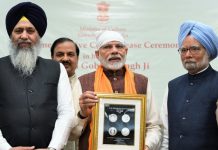By Samiran Saha

Photo : Shailendra Pandey
THE BUZZ these days in Air India Building, Nariman Point, Mumbai — headquarters of the National Aviation Company of India Ltd (NACIL) — is about more new big-ticket appointments. As part of its turnaround strategy, the state-run carrier has lined up a team whose annual emoluments boggle the mind. The April appointment of Gustav Baldauf, former executive vice-president of Austrian Airlines and chief operating officer (COO) of NACIL, which runs Air India (AI), was just the beginning. Now it plans to hire a COO for its low-cost international arm, Air India Express, a chief strategy officer, a chief information officer, a chief communication adviser, and a chief adviser to handle its human resources (HR) issues.
Baldauf being airdropped into a top job may not have been received well by the staff in the middle and junior management cadres, but senior AI officials and industry observers feel that the decision to have a “hands-on” COO will help the flag carrier turn around faster. “There are gaps in our resources and capabilities, and I see no harm in sourcing experienced manpower from outside. Baldauf has come in with a clear mandate and he will work to a plan to turn the airline around in these competitive times,” says a senior AI official who does not wish to be identified. “There have been governing issues in Air India for a long time, and the government now has to decide whether the airline needs technocrats or bureaucrats to run its affairs,” he adds.

Photo : Shailendra Pandey
This is the first time that a COO has been hired from outside the ranks of the bureaucracy and given the task of salvaging Air India within three years. The airline also recently recast its board, inducting four new independent directors — Anand Mahindra, vice-chairman and managing director of auto major Mahindra and Mahindra Ltd, Fali Homi Major, former chief of air staff of the Indian Air Force, Amit Mitra, secretary-general of industry lobby FICCI and Yusuffali MA, managing director of Dubai-based industrial house Emke Group. While Mitra will advise the airline on HR issues, Mahindra will help in audit and finance.
But middle-level executives are fuming. “The airline has a huge debt. Earlier, it even found it difficult to pay our salaries on time. But hiring a COO at Rs 3.14 crore per annum is unacceptable,” says one.
According to him there have been no promotions or pay hikes in two years, and he wants to know why the considerable in-house talent within the organisation is not being tapped. His colleague is further peeved that staff from the northern region have been asked to sign a contract that could get them transferred to Air India SATS Airport Services Private Ltd, a joint venture AI formed with Singapore Airlines for ground-handling operations. “We aren’t even sure if we will be retained at all,” he bitterly complains.
BUT THE other side is equally insistent that all this is for the good. An analyst with a global consultancy, for instance, justifies the appointments, saying, “The resentment is justified, but then the staff too needs to understand that the move is aimed at pulling the airline out of the financial quagmire it is in.” He is endorsed by Kapil Kaul, head of the India Practice at the Consultancy Centre for Asia Pacific Aviation.
[box]
HIGHS AND LOWS
> OUTSOURCING
This is the first time that a COO has been hired from outside the airline bureaucracy
> PEER SUPPORT
Many top aviation officials endorse AI’s expensive turnaround strategy
> LOSING AIRLINE
Despite an equity infusion of Rs 800 crore, AI has suffered losses of Rs 15,000 crorey
> BOARD RECAST
[/box]
“Getting the right people at the top is critical for an airline that is looking to recover. There should be no compromise on the quality of people being inducted,” Kaul told TEHELKA. And though Ankur Bhatia, executive director of Bird Group, an aviation technologies service provider, concedes that Air India has some seasoned manpower, he too considers it a sensible step. But, it stands to reason that with so much heartburn all around, the airline’s morale will go down still further.
Disturbingly, despite the airline receiving an equity infusion of Rs 800 crore from the government, it has suffered cumulative losses of nearly Rs 15,000 crore, and its market share is 16.9 percent — way behind market leader Jet Airways and Kingfisher Airlines. But right now nobody is asking what makes them tick. All the talk is about AI’s expensive hiring spree.
Civil Aviation Minister Praful Patel recently told Parliament that the national carrier was expected to lose around Rs 5,400 crore this fiscal and that the trend was likely to continue for a few more years. And Baldauf has just three.
[box]
RBI comes to airlines’ rescue
HERE, FINALLY, is some good news for the debtridden aviation industry: the Reserve Bank of India (RBI) is considering a second restructuring package for the sector. Banks have been pressing the RBI to give its nod for this second restructuring package.
If the RBI agrees, the airline companies will have more time to service their massive debt. Besides, it will help banks to maintain higher profitability. Banks have to set aside a certain percentage of their advances as a contingency for loans going bad, or unpaid. Profitability apart, this also limits lending capacity. “Banks have to make provisioning for these bad loans, which impact the profitability of the banking sector,” says a senior bank official.
According to the Centre for Asia Pacific Aviation, three major airline firms together owe $13.5 billion. However,the RBI is likely to retain the “recompense” clause for such loans. Under this, if an airline does well a bank can reverse some concessions, including reduction in the rate of interest. Moreover, banks will lend to aviation firms on a case-to-case basis. Says Ranjan Dhawan, CGM, Punjab National Bank. “For a viable project we will lend to them, despite the sector being in trouble.” Now for a high!
Abhishek Anand
[/box]












